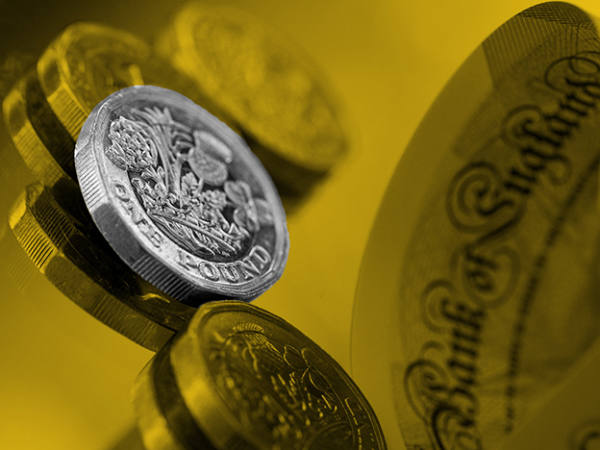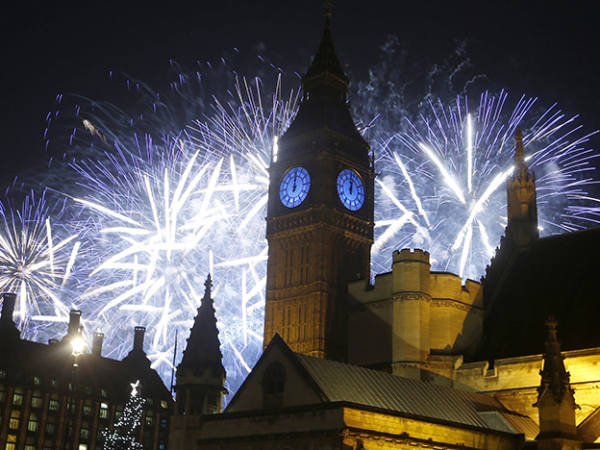- State funding for South Korean pop culture helped the nation build back from the Asian financial crash
- UK arts are undergoing a crisis during the pandemic, following a decade of government cuts
- South Korea’s success shows why the UK shouldn’t hesitate to give more support to the cultural sector
Imagine, if you dare, an entire music genre backed by the UK government. It would not be, we can presume, a global chart-topping success.
And yet, against all odds the South Korean government has achieved just that. On the back of considerable state support, Korean pop music – or K-pop – has risen from the depths of obscurity to international renown in barely a decade. If you haven’t heard it yourself, your kids undoubtedly have.
Even before their latest single went straight to number one this week, the genre’s flag bearers, BTS, were known to British teenagers as the “biggest boy band on the planet”. In the year to June, their albums were consumed more than any group's internationally – the only other band in Nielson's mid-year report to surpass one million listens was The Beatles.
BTS has inspired fans worldwide to learn Korean. The group has addressed the United Nations, twice. But if investors didn’t tune in for the latest record, many of them were there to hear the bells ring for the listing of the band’s agency, Big Hit Entertainment (KR:352820), on the South Korean exchange last month. Big Hit’s shares nearly doubled on its market debut, making it the country’s largest public offering in three years.
While in the UK bands have generally fared better when sticking two fingers up at the establishment, South Korea’s cultural – and subsequent economic – triumph can largely be traced back to the generous hand of the state. In her book The Birth of Korean Cool, author Euny Hong names former president Kim Dae-Jung as the “hero” of Hallyu, or the so-called Korean wave. Hallyu’s improbable success since Kim became leader in 1998 holds an important lesson for the government in the UK, where the arts sector has remained on the brink of crisis since the outbreak of Covid-19.
The Ministry of Culture
President Kim’s vision was for a new Korean culture to emerge from the ashes of the Asian financial crash of the 1990s. With the country’s finances in tatters, cultural goods could be manufactured with relatively little infrastructure, without depending on South Korea’s sparse natural resources. In the age of the internet, hit records could be exported even faster than at the peak of Beatlemania.
Hong describes how a $50m (£37.5m) annual budget, eventually rising to as much as $500m, was earmarked for supporting cultural content, while the state also launched a $1bn investment fund to finance the pop culture machine. Some 10 per cent of movie box office sales was funneled into an art promotion fund. The Ministry of Culture was even responsible for developing virtual reality and hologram technology for concerts.
It seems to have paid off: BTS and their K-pop peers now make billions in album, merchandise and ticket sales every year. While dwarfed by the revenues of local giants Samsung (KR:005930) and Hyundai (KR:005380), the secondary impact of these pop idols on the country’s tourism and beauty industries is harder to quantify.
The K-pop machine has also kept rolling even after other industries were ground to a near halt by the pandemic. As exports of South Korean cars fell, the government estimated one BTS hit – “Dynamite”, released in August – could generate $1.4bn for the local economy alone through direct sales and purchases of related products.
Surviving as a ‘world leader’
Not every country has a Ministry for developing futuristic concerts and recruiting the next pop idols, but state backing for cultural institutions is far from unprecedented. Since the 1970s, the Australian government has revived its dwindling film industry with ongoing investments, including a AUD$50m (£27.5m) fund this year for productions halted by the pandemic. Cinema in France and even Hollywood has long been bolstered by tax perks.
The long line of poets and painters on which Britain has built its global reputation – from Shakespeare to J.M.W. Turner – were also supported for hundreds of years by royal and noble patrons. But recently, the state purse has somewhat tightened.
A review of 565 organisations by Arts Council England found their funding from local councils dropped more than a quarter from 2010 to 2015, as the national government imposed wide-reaching austerity measures following the 2008 financial crash. In the midst of another economic crisis this year, the Conservative administration has also been hesitant to hand a lifeline to the arts. Although eventually announcing a £1.6bn support package in July, a parliamentary report found this did not come quick enough to prevent redundancies and closures across the sector, with contributors raising the spectre of the UK losing its position as a “world leader” in the arts.
While a hit to businesses was unavoidable following the mass closure of theatres, galleries and other institutions, the impact was compounded by the preceding decade of cuts, which has left them more dependent on private grants and a steady stream of ticket sales. Through successive governments, as in the Covid-19 crisis, UK arts organisations may have received enough money to survive, but not to thrive.
That’s despite the outsized contribution of these organisations to tourism and employment in the country's capital, where one in six jobs are provided by the creative industries. Hong describes how before the Korean wave, President Kim was inspired by the revenue pulled in by the nation's stage musicals. Today, the UK is more likely to envy the resilience of Hallyu in the wake of the last two financial shocks.
Government backing on a South Korean scale would go against the Conservative party’s libertarian instincts. Throughout the pandemic, the chancellor Rishi Sunak has repeated his desire not to “pick winners” when dishing out government aid. But all forms of state funding are, by their nature, selective to some extent. The government has the power to decide how ambitious and targeted it wants to be with this money.
Westminster’s Bullingdon boys may not have the vision, or indeed the desire, to back the next world-beating boy band. But the success of BTS and co since the Asian financial crash shows why the cultural sector should be more than an afterthought when rebuilding a national economy – it may even emerge as that nation’s saving grace.











